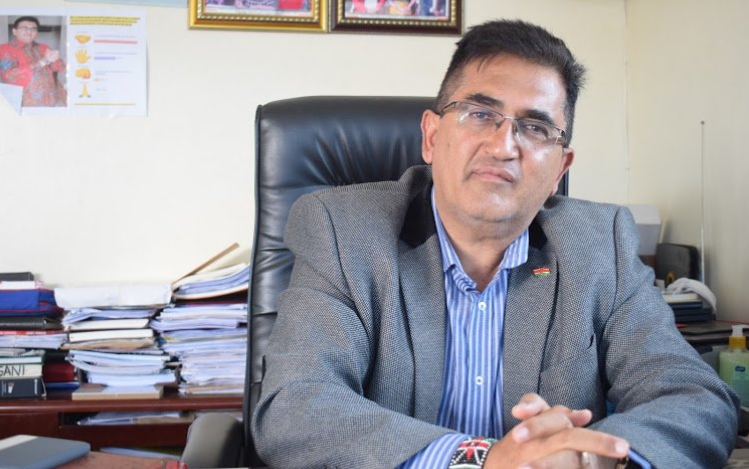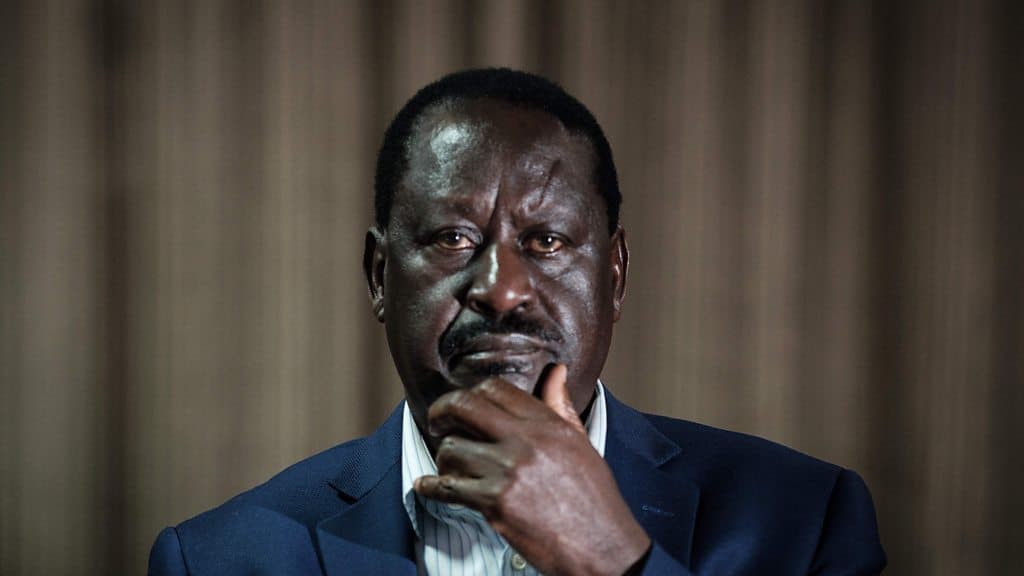Days after the reconstitution of the Independent Electoral and Boundaries Commission (IEBC), the fate of North Imenti Member Of Parliament (Mp) Rahim Dawood hangs in the balance after a constituent initiated the process of the lawmaker's ouster from office.
North Imenti residents have started collecting signatures to recall the Mp, accusing Dawood of failing to deliver tangible developments.
Renowned Lawyer Kiogora Mugambi who has initiated the signature collection drive says, “I have traversed several places in North Imenti and the electorates clarion call is to remove their MP from office. He has violated the constitution and this is the reason they are recalling him. We will collect a third of the votes and present them to Independent Electoral and Boundaries Commission (IEBC) for verification and approval,”
Mugambi who was presenting the document to residents in Meru town, also said the electorate is aggrieved by the MP due to his failure to exercise his oversight role by not condemning or raising questions in parliament with regard to ongoing abductions and killings around the Country and North Imenti in specific.
They also accuse Rahim of voting for the Finance Bill 2024 against the wishes of his constituents as well as failure to lobby for budgetary allocations to complete stalled national government projects especially roads.
Additionaly, they state that the MP irregularly participated in voting for the impeachment of the second deputy President of the republic of Kenya Rigathi Gachagua.
Rahim is serving his third consecutive term as North Imenti MP and he is a staunch supporter of President William Ruto and his Deputy Kithure Kindiki.
In Kenya, the recall of Members of Parliament is facilitated by the Constitution of Kenya (2010) and the Elections Act (2011).
Article 104 of the Constitution establishes the right to recall a Member of Parliament. However, it doesn’t specify the grounds, instead deferring to legislation to provide the details.
Section 45 of the Elections Act provides the specific grounds for recall. According to this section, a Member of Parliament may be recalled when:
The MP is found after due process of the law, to have violated the provisions of Chapter 6 of the Constitution. Chapter Six deals with Leadership and Integrity.
The MP is found, after due process of the law, to have mismanaged public resources. This could include misappropriation of the constituency development funds, improper use of public property, engaging in corrupt practices and a failure to properly account for public funds under their management.
The MP is convicted of an offence under the Elections Act No.24 (2011). This includes offences such as: Bribery, undue influence, Electoral Malpractice, Voter Impersonation, Double Voting, Interfering with election materials, Destroying or falsifying election documents, Making false statements about a Candidate and Engaging in campaigning outside of the designated periods.
The following is a detailed process of recalling a Member of Parliament in Kenya, as stipulated by the Elections Act.
Initiation of the Recall Petition: A voter in the MP’s Constituency initiates the process by applying to the Independent Electoral and Boundaries Commission (IEBC) for approval to start a recall petition. The application must be in writing and it must have details of the reasons for a recall.
The IEBC Review: The IEBC will review the application to ensure it meets legal requirements. If approved, the IEBC will issue a recall petition form to the person who initiated the recall within 14 days.
Signature Collection: The person who initiated the process will then have 30 days to collect signatures from at least 30% of the registered voters in the affected MP’s Constituency. Each signature must be accompanied by the voter’s name, ID Number, and voter registration number.
Submission of the Petition: The completed petition will then be submitted to the IEBC. The submission must be accompanied by a list of at least 15% of the voters who signed the petition. These will serve as witnesses.
Verification Process: The IEBC will have 30 days to verify the signatures and authenticity of the petition. This includes confirming that the signatories are actually registered voters in the affected MP’s Constituency.
Notification: If the Petition is found to be valid, then the IEBC will notify the Speaker of the National Assembly within 15 days.
Recall Election: If the grounds for a recall are confirmed, the IEBC will conduct a recall election in the Constituency within 90 days. This recall election is a sort of referendum where voters will be asked to answer “yes” or “no” to their MP being recalled. A simple majority (50% + 1) of the votes cast is required for the recall to succeed.
Results Declaration: The IEBC will tally the votes and declare the results. If the majority votes “yes”, the MP will lose their seat. If this happens, then the IEBC will conduct a by-election in the Constituency within 90 days.
There are some important points to be taken into consideration about this whole process.
A recall petition cannot be filed against an MP more than once during their term.
A recall petition cannot be initiated by anyone who had unsuccessfully contested for that seat in the elections.
A recall petition cannot be filed within the first 24 months after the election of the MP or within 12 months of the next general election.
The recalled MP will still be eligible to contest in the resulting by-election.







